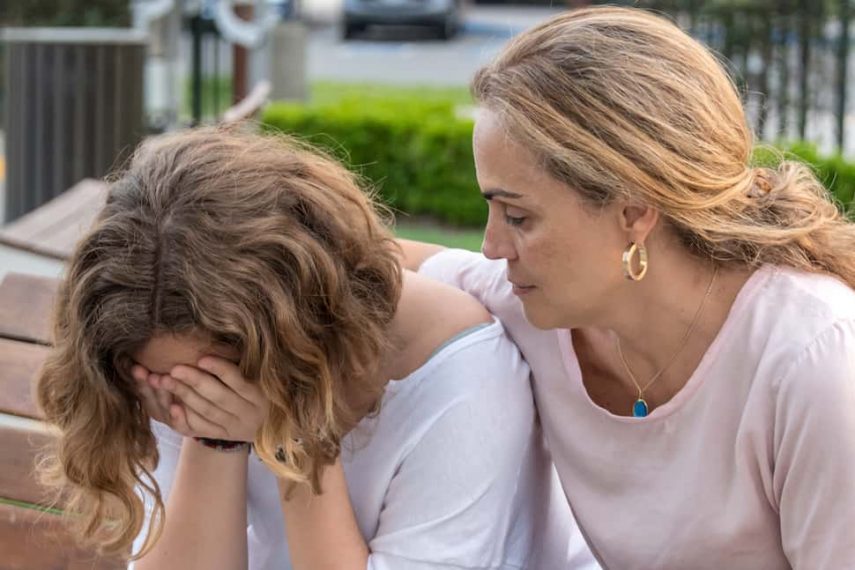Bipolar Disorder and Anxiety: Tips For Helping Your Dependent Adult Child Manage Their Symptoms

Parents of adult children with bipolar disorder and anxiety face challenges as they guide and support them into getting treatment. To help your child manage their illnesses and live an independent life it is important that you educate yourself on all aspects of bipolar disorder and anxiety. With your knowledge, you can fully support them in the best ways possible. Make sure to listen without judgment, support them as much as you can, and encourage them to seek residential treatment so they can learn the skills and tools needed to live with these chronic mental health conditions.
It is normal to experience feelings of anxiousness and it’s natural for your mood to change, especially when stressful or hard times happen. Unfortunately for some people, their mood changes so drastically that it can be debilitating. Anxiety can prevent a person from maintaining relationships, work, or other seemingly normal daily life activities.
Bipolar disorder is a mental health disorder that can cause severe shifts in an individual’s mood. Much more than a mood swing, these depressive and manic shifts can be extremely painful and disabling. These states are unpredictable in their intensity and duration.
Someone suffering from both bipolar disorder and anxiety together may face many challenges in being able to function normally. Fortunately, both mental health disorders respond extremely well to treatment. Treatment is not a one-time occurrence—individuals with bipolar disorder and anxiety need to commit to ongoing treatment and care. As a parent of an adult child with bipolar disorder and anxiety, it can be hard to help your son or daughter, especially if they are living with and dependent upon you.
My oldest daughter moved out of state to Chicago for college and ended up creating a life for herself there. I thought that was normal for kids to do once they grew up. My younger daughter Stacey didn’t have such an easy time. She wanted to stay close to home and seemed to have a difficult time adjusting to living on her own. I knew college was stressful for students but Stacey seemed constantly stressed. She began to be snappy, irritable, and downright rude at times. She was often depressed but she’d usually come out of it. It became difficult to keep up with her—sometimes it felt like just a mood swing but other times she wouldn’t leave her room and would skip class for days. She increasingly seemed all over the place. I knew I had to broach the subject cautiously with her. Stacey acknowledged that she had felt very up and down a lot. We found a mental health facility and had a complete screening, Stacey was diagnosed with both bipolar disorder and anxiety.
Tips for helping your adult with Bipolar Disorder and Anxiety
If your adult child thinks they are managing just fine in life but you can see their symptoms are causing them to suffer there are things you can do to help in approaching the idea of a mental health evaluation.
- Just listen. Sometimes you need to just listen. If you are constantly suggesting ways your adult child can get treatment and pushing it on them they can become resentful.
- Support your adult child with an optimistic attitude. When you can see your adult child is trying and making strides praise them and congratulate them on their efforts. Encourage them to keep going and keep trying.
- Don’t take it personally. Someone with bipolar disorder and anxiety will experience mood changes that may be negative or upsetting but don’t take it personally.
- Stick by them and attend family therapy. Offer to help them find treatment, you can also offer to take a therapy session with them. Knowing that they don’t have to go at it alone can be a huge relief.
- Help prevent stress. Stressful situations can trigger a mood swing so do your best to help prevent unnecessary stress in your adult child’s life.
- Do fun things with them. Activities that your adult child once loved may seem like a far fetched idea, offer to do those activities with them.
- Practice self-care. To make sure you are doing the best you can you need to be supported and healthy yourself. Practice self-care so you are able to fully support your adult child.
Begin Your Recovery Journey Today.
619-466-0547Residential Treatment for Bipolar Disorder and Anxiety
Caring for and supporting your adult child can be an invaluable source of help for but you alone cannot help them recover from their mental illness. To recover from bipolar disorder and anxiety, professional help is essential for long-term success. A successful treatment program for someone with bipolar disorder and anxiety will provide an individualized plan tailored to their unique needs.
Residential treatment centers for bipolar disorder and anxiety may be the best option for your loved one. While in inpatient treatment, your adult child will be able to focus solely on recovery with zero distractions from everyday life. During treatment, patients will learn to understand their mental illness and the tools and skills necessary to learn to manage and live with their chronic illness. Residential treatment has several benefits in treating bipolar disorder and anxiety such as:
- A safe and secure environment designed for recovery
- A customized treatment plan
- Care 24 hours a day
- Individual, group, and family therapies
- Addressing any co-occurring mental health disorders or substance use disorders
- Education and training for families on how to support their loved ones
- Help with exercise and nutrition
- Alternative and holistic therapies like meditation and art therapy
- Support and planning for care after active treatment has stopped
Receiving the best care possible is what will help your adult child learn to manage their bipolar disorder and anxiety symptoms and live an independent, happier, healthier life.
Once we received Stacey’s diagnosis we found a residential facility for her to receive treatment. There she received the best care and learned all about bipolar disorder and anxiety, and the best ways to manage it. My husband and I attended family programming so we could best support Stacey and help her learn to live a healthy independent life. After treatment, Stacey committed to her medication and therapy sessions. Now Stacey has moved out and is back in school. We are so proud of how far she has come.
If you’re concerned about a loved one and believe they may need residential care, we can help. BrightQuest offers long-term treatment for people struggling with complex mental health illnesses and co-occurring disorders. Contact us to learn more about our renowned program and how we can help you or your loved one start the journey toward recovery.






